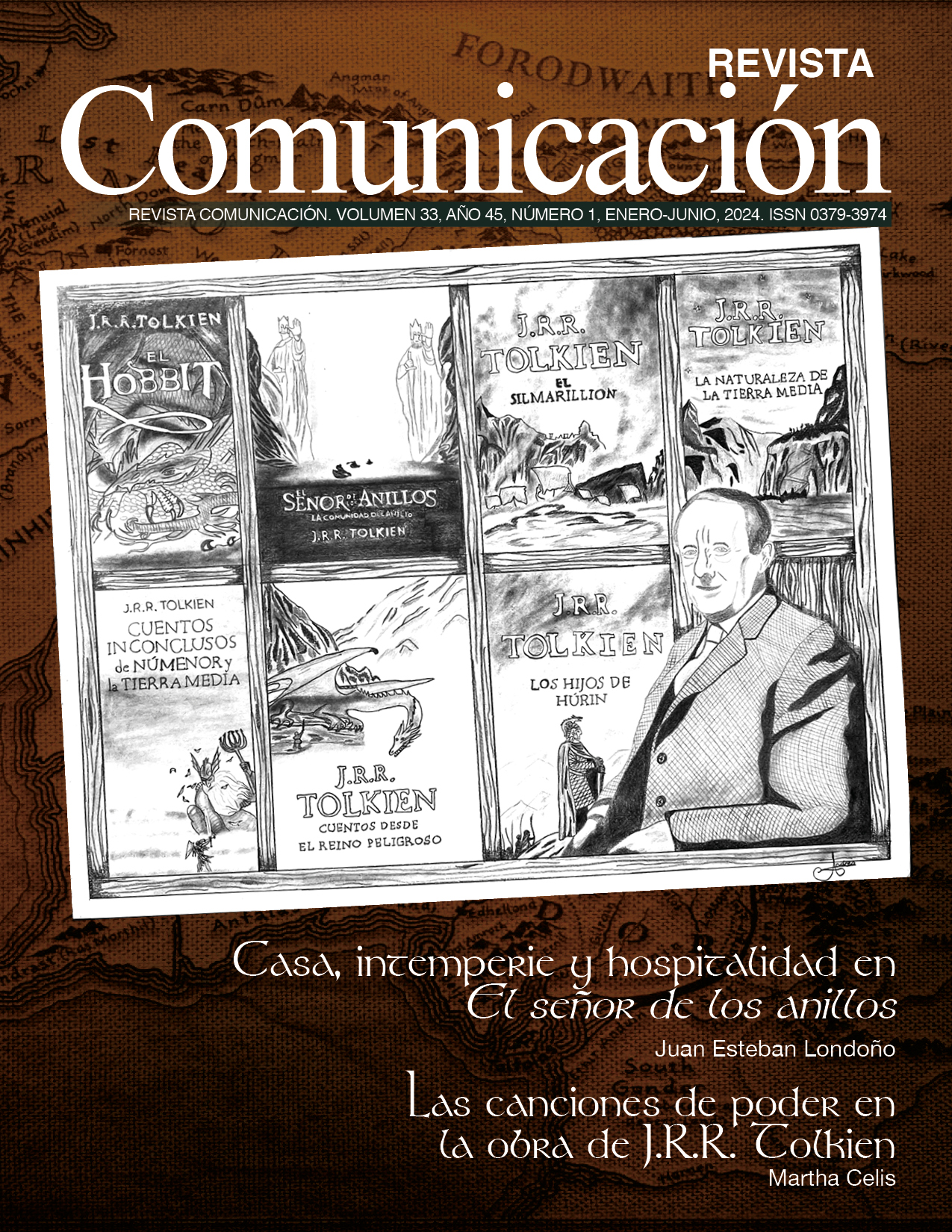The Garments of Humility
Contenido principal del artículo
Resumen
If we think about it, it is easy to find plenty of reasons to be humble. Life and human work are tiny and irrelevant compared to the grand scale of the cosmos. Human beings are fallible beings, full of flaws and errors. Forces and agencies other than our own (i.e., mentors, coaches, parents, friends, partners, etc.) are often involved in our achievements and the development of our qualities or talents. Moreover, lack of humility is a pernicious trait for it baulks self-improvement and prevents proper acknowledgement of other people’s potential. In the works J.R.R. Tolkien we learn that it was Melkor’s lack of humility before God what brought about his own downfall. And we also see how Sauron’s arrogance, as a myopia of sorts, prevented him from discovering the plans of his rivals and brought about his own destruction. This paper overviews the traditional conception of humility as a golden mean between arrogance and self-deprecation and shows how The Lord of the Rings – understood within its indissoluble bond with The Silmarillion – is a great
tale about how humility overthrows arrogance.
Detalles del artículo
This work is licensed under a Deed - Atribución/Reconocimiento-NoComercial-SinDerivados 4.0 Internacional - Creative Commons.
Política de acceso abierto
Esta revista provee acceso libre inmediato a su contenido bajo el principio de que hacer disponible gratuitamente investigación al público apoya a un mayor intercambio de conocimiento global.
Ser una revista de acceso abierto, implica que todo el contenido es de libre acceso y sin costo alguno para el usuario o usuaria, o institución. Las personas usuarias pueden leer, descargar, copiar, distribuir, imprimir y buscar los artículos en esta revista sin pedir permiso previo del editor o el autor con fines educativos y no de lucro.
La única limitación de la reproducción y la distribución, y el único papel de los derechos de autor en este ámbito, debe ser dar a los autores el control sobre la integridad de su trabajo y el derecho a ser debidamente reconocidos y citados. (Budapest Open Access Iniciative)
LICENCIAMIENTO Y PROTECCIÓN INTELECTUAL
Todos los artículos publicados, están protegidos con una licencia Creative Commons 4.0 (Deed - Atribución/Reconocimiento-NoComercial-SinDerivados 4.0 Internacional - Creative Commons) de Costa Rica. Consulte esta licencia en: https://creativecommons.org/licenses/by-nc-nd/4.0/deed.es
Las licencias constituyen un complemento al derecho de autor tradicional, en los siguientes términos:
- Se impide la obra derivada (es decir, no se puede alterar, transformar ni ampliar el documento).
b. Siempre debe reconocerse la autoría del documento referido.
c. Ningún documento publicado en la Revista Comunicación, puede tener fines comerciales de ninguna naturaleza.
Mediante estas licencias, la revista garantiza al autor que su obra está protegida legalmente, tanto bajo la legislación nacional como internacional. Por tal motivo, cuando sea demostrada la alteración, la modificación o el plagio parcial o total de una de las publicaciones de esta revista, la infracción será sometida a arbitraje internacional en tanto que se están violentando las normas de publicación de quienes participan en la Revista y la Revista misma. La institución afiliada a Creative Commons para la verificación en caso de daños y para la protección de dichos productos es el Instituto Tecnológico de Costa Rica, mediante la Editorial Tecnológica y la Vicerrectoría de Investigación.
Citas
Alighieri, D. (1959). Dante’s Inferno, The Divine Comedy (Vol. 1) (H. Francis, Trans.). New York: Cassell, Petter, Galpin & Co.
Clifford, W.K., (1999), The ethics of belief. In T. Madigan, (Ed.), The ethics of belief and other essays (pp.70-96). Amherst: Prometheus.
Dunnington, K. (2016). Humility: An Augustinian Perspective. Pr Ecclesia, XXV(1), 18-43.
Driver, J. (2001). Uneasy Virtue. New York: Cambridge University Press.
Plato (1925). Plato in Twelve Volumes (Vol. 9) (H. N. Fowler, Trans.) Cambridge: Harvard University Press.
Richards, N. (1992a). Humility. Philadelphia: Temple University Press.
Richards, N. (1992b) “Humility”. In L. Becker, & C. Becker (Edits.), Encyclopedia of Ethics. New York & London: Garland Publishing, 577-579.
Richards, N. (1992b) Humility. In L. Becker, & C. Becker (Edits.), Encyclopedia of Ethics (pp. 577-579). New York & London: Garland Publishing.
Snyder, C. (2020). Hobbit Virtues. Rediscovering Virtue Ethics Through J.R.R. Tolkien’s The Hobbit and The Lord of The Rings. New York: Pegasus Books.
Tolkien, J.R.R. (1954). The Lord of the Rings. (2004, Nueva York: Houghton Mifflin Hartcourt).
Tolkien, J.R.R. (1980). Unfinished Tales of Númenor and Middle-earth. C. Tolkien (Ed.). (2021, New York: Houghton Mifflin).
Tolkien, J.R.R. (1977). El Silmarillion. C.Tolkien (Ed.). (2004, Nueva York: Houghton Mifflin Company).
Tolkien, J.R.R. (1993). Morgoth’s Ring. C. Tolkien (Ed.). (2002, New York: Houghton Mifflin).

